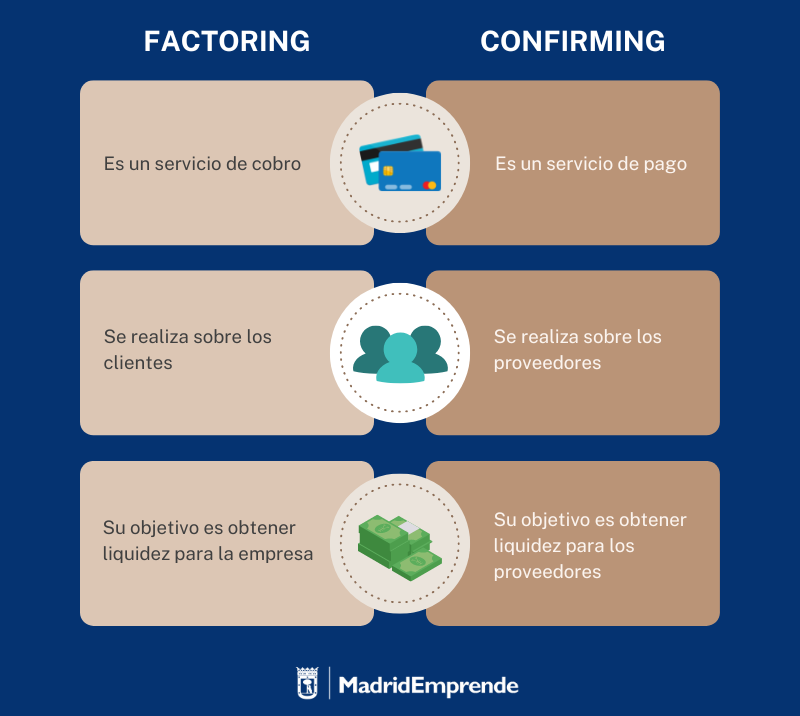- factoring and confirmed are financial products that can bring great benefits to any company, although with differentiated purposes
- The factoring It is a collection management instrument
- The confirmed It is a provider payment service.
factoring and confirmed They are very useful financial tools that every company should know. Discover both concepts, along with their typologies, advantages and disadvantages.
factoring
The factoring It is a collection management instrument that allows a company to collect its invoices in advance, by transferring the commercial credits of its clients to a financial institution.
With this, a financial entity manages the collection of invoices from the clients of an organization, in exchange for commissions and management expenses. This will be the one that assumes the risk of non-payment.
This "advance bill" provides available money to continue producing, avoiding insolvency or lack of liquidity.
Modalities
There are three types, depending on who bears the risk:
- no recourse
If a non-payment by the client occurs, the financial institution is the one that assumes said risk. For this reason, it is the most requested modality, especially by SMEs.
- with recourse
In this case, the financial institution does not assume any type of risk because it only deals with collection management and financing. The company itself is responsible for assuming the risk of insolvency.
- Secret
The identity of the requesting company is kept secret. With this, the companies that use it do not lose the trust of their clients and financial information that can be negative is protected.
confirming
The confirmed o “confirmed supplier payment” is a supplier payment service, whereby a financial institution is responsible for managing and paying the invoices of a company's suppliers.
The parties involved are the company that hires said service and pays the commission, the financial institution that is responsible for the management and payment of invoices, and the providers that benefit from the payment service.
Modalities
There are several models:
- no recourse
The risk of non-payment rests with the financial institution and the provider is not responsible for any danger.
- with recourse
In this option, the risk passes to the provider, eliminating the security of the collection.
Factoring and confirming. Advantages and disadvantages
One of the most important benefits for a company that opts for the factoring is that immediate liquidity is achieved, being a fast, simple process that does not generate debts. With respect to confirmed, the management of invoices is outsourced, which reduces this administrative management. Likewise, it improves relationships and commercial dealings with suppliers.
In relation to the inconveniences, the financial cost of the factoring is high, since in addition to the commission for each operation carried out, they are charged for other types of management commissions. For his part, with the confirmed the company may lose control of the payments that are made. Although the financial entity carries out the accounting, it is recommended that the company itself does it in parallel.


